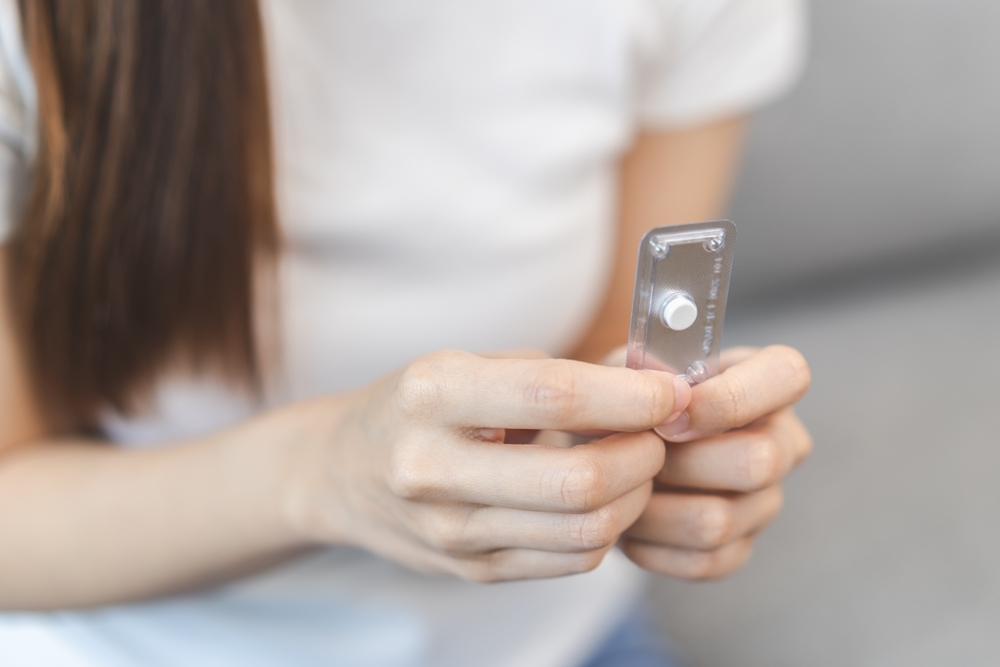
Emergency contraception (EC) is a safe and effective way to prevent pregnancy after having unprotected or condomless sex. Also known as the “morning-after pill,” EC is often misunderstood, especially about when to take it. However, knowing exactly what it is and how it works can help you make an informed decision.
Here’s a look at the different types of EC, their potential side effects, and how to find an NJFPL health center near you.
What Is Emergency Contraception?
EC is a form of birth control that can stop pregnancy before it begins. It can be extremely useful in cases where contraception wasn’t used during sex, and you do not want to get pregnant. Here are examples of times when EC may be used:
- Your partner did not pull out in time.
- You got swept up in the moment and a condom wasn’t used.
- You had an “oops” contraception moment. For example, the condom broke, or you forgot to take your birth control pill.
- You were in a scary situation and couldn’t use contraception.
- You want to have it on hand just in case you need it in the future.
EC works by delaying ovulation temporarily. It can prevent your ovary from releasing an egg, so the egg cannot be fertilized. EC is not the same as the abortion pill, which works in a different way to end a pregnancy that has already occurred.
Here are the different types of EC:
- Plan B One-Step (or a generic version). This pill can be purchased over the counter at a pharmacy or drugstore. It is 81% to 90% effective at reducing the risk of pregnancy.
- Ella. This pill is available only by prescription and has a failure rate of 2.1%. Ella is also more effective than Plan B for people who weigh 175-195 pounds.
- Copper IUD: This intrauterine device (IUD) must be inserted by your healthcare provider and may reduce the risk of pregnancy by 99%.
- Levonorgestrel IUD. This IUD must also be inserted by your provider and has a low failure rate of 0.3%.
Where Can You Get Emergency Contraception?
Plan B One-Step (or a generic version) is the only form of EC you can buy over the counter without a prescription. You can get Ella and IUDs from your provider or at health centers that offer sexual and reproductive health services.
When Should You Take Emergency Contraception?
Even though EC is commonly referred to as the morning-after pill, it can be taken up to five days after sex. However, it is most effective when taken within three days.
The 5-day rule also applies to IUDs, so if you plan on getting an IUD, it must be inserted within that time to prevent pregnancy.
It’s important to take EC as soon as you can to delay ovulation. EC does not work if you have already ovulated.
Is Emergency Contraception Safe?
Yes, EC is completely safe. It won’t interfere with your ability to get pregnant later on. EC goes through the same rigorous testing as any other medication to ensure its safety.
What Are Its Side Effects?
EC may cause some side effects, but side effects are usually rare and go away on their own.
Potential side effects of EC include:
- Upset stomach
- Nausea
- Vomiting
- Headache
- Dizziness
- Tiredness
- Vaginal bleeding
- Cramping
- Changes to your menstrual cycle
- Breast tenderness
Feel free to ask your provider or visit a health center to learn more about EC. When used as directed, EC can be a safe and effective way to reduce your risk for pregnancy after having sex without a condom or other birth control method.
The New Jersey Family Planning League is dedicated to providing access to sex education and family planning services for all people regardless of their gender identity, sexual orientation, income, or insurance status. Visit NJFPL today to find a health center near you.
If you are experiencing any form of abuse and/or violence, please know that you are not alone. Help is available.
The New Jersey Coalition to End Domestic Violence offers lifesaving tools and immediate support 24/7 to empower victims and survivors of domestic violence to find safety and live free of abuse. Its toll-free 24/7 hotline is 1-800-572-SAFE (7233), or text LOVEIS to 22522.
The New Jersey Coalition Against Sexual Assault offers medical, legal, and support services for survivors of sexual violence. Its toll-free 24/7 hotline is available at 1-800-601-7200.
Your safety comes first, so all calls are confidential. If you or someone you know is in immediate danger, call 9-1-1.
